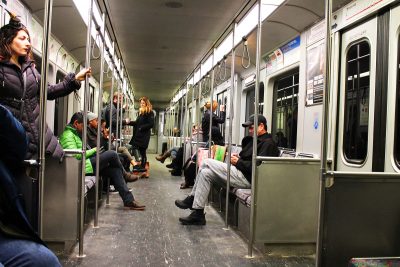
Massachusetts Governor Charlie Baker called for $200 million in Chapter 90 funds to progress local transportation infrastructure projects throughout the state, according to a Thursday press release from Baker’s office.
Chapter 90 is a reimbursable program, which provides grants that allow cities and towns to improve the well-being of highways, roads and bridges, among other maintenance, according to the Massachusetts Department of Transportation’s website.
This request marks the third time the Baker administration has asked for $200 million in Chapter 90 funds. Since Baker took office in 2015, the administration has directed MassDOT to release $500 million in Chapter 90 funds.
Massachusetts Lt. Governor Karyn Polito said in the release these funds provide opportunity to improve local communities.
“Our administration has prioritized strengthening the state’s relationship with the Commonwealth’s cities and towns, and Chapter 90 funding is an important resource in that partnership,” Polito said. “In addition to unrestricted local aid and Chapter 70 education monies, these infrastructure funds are yet one more tool for local leaders to apply to their specific needs and improve their communities.”
The legislation was amended to allow cities and towns to use Chapter 90 funds in a more straightforward manner when approved by MassDOT, according to the release.
Administration and Finance Secretary Kristen Lepore said in the release this amendment will bring more focus to financial aid.
“Prioritizing aid for our cities and towns has always been at the forefront during our budget planning process, and the administration has continued this commitment this year,” Lepore said. “Local aid, including Chapter 90 funding, is key to ensuring all communities across Massachusetts thrive.”
Barry Bluestone, a professor of political economy in the School of Public Policy and Urban Affairs at Northeastern University, said he considers transportation to be an essential obligation of parliamentary administration.
“This benefits residents by maintaining a good road system and a good local highway system so that people can get to work, get to stores and so forth,” Bluestone said. “Transportation is a fundamental responsibility of local state and federal government, so we have lots of need for improving our transportation and repairing it. These funds help us do that so that we keep our roads in reasonably good condition.”
Bluestone said Baker’s request is useful for communities to maintain their infrastructure. While Massachusetts repairs state highways and the federal government preserves turnpikes and interstates, local communities are responsible for refurbishing all other roads and bridges, he said.
Daniel Aldrich, the director of the Security and Resilience Program at Northeastern, said he believes infrastructure investment is crucial to preserving a state’s resilience over time.
“These investments will help Massachusetts maintain or create high quality roads and bridges that will make it through extreme weather patterns and also extended patterns of use,” Aldrich said. “Many engineering studies of the United States have rated our country’s overall infrastructure as failing because of a lack of investment. This program can help to reverse that trend here in Massachusetts.”
Several Boston residents said they were concerned about how the state maintains the transportation infrastructure.
Steve Kean, 48, of the North End, said the commuter rail needs more funding.
“[Transportation in Boston] could use more investment,” Kean said. “I live in the suburbs, I take the train every day, and what I see mostly is the rail and the poor state of the rail. Particularly in the winter months there are a lot of delays.”
Danny Lorenzo, 29, of East Boston, said Massachusetts’ roads are acceptable, but public transportation needs to be improved.
“If you have a job at 6 a.m., you’re not getting to work, especially if you work far, [like] I do,” Lorenzo said. “So extending service and fixing up what they can, while they can, is the best thing that they can do.”
Sequon Johnson, 20, of Roxbury, said though the roads are difficult to criticize compared to other cities, he hopes to see an improvement with public transportation.
“It’s not that bad and I can’t really complain,” Johnson said. “When I compare it to other places, it’s truly great. I would hope to see more employees, more buses and more trains on the roads.”


















































































































